News

Import restriction results in the emergence of a new capitalist class - innocent consumers to pay the price !
Sri Lanka’s transformation into a production orientated market economy with import restrictions will be leading the country towards the emergence of a separate domestic capitalist class.
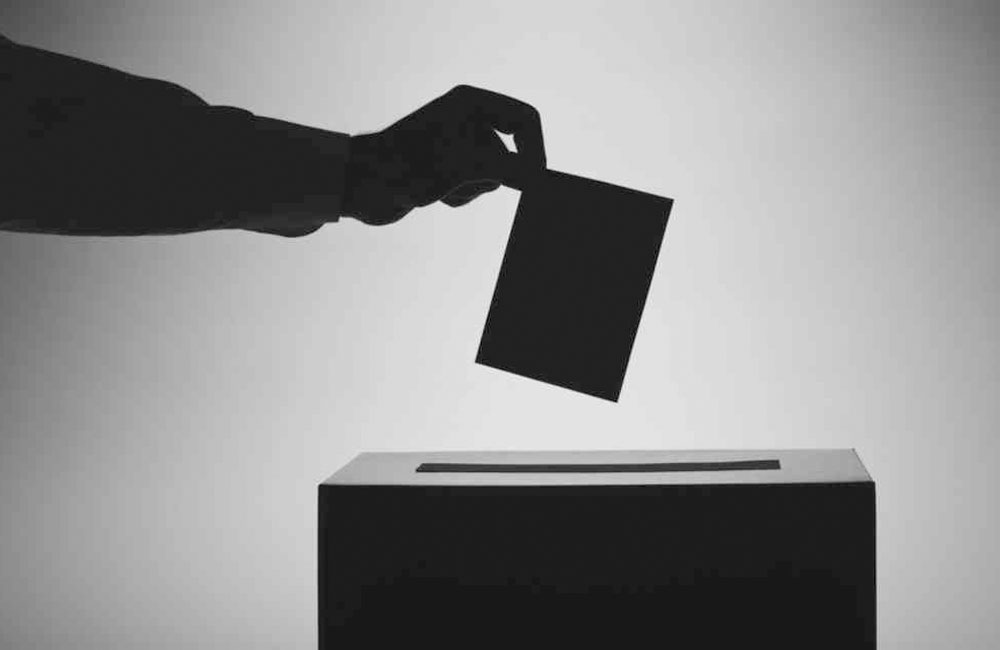
Election Commission prepares to conduct Provincial Council election
Newly-appointed Elections Commission (EC) Chairman Nimal Punchihewa said the government would have to spend approximately LKR 4.5 billion to hold the Provincial Council (PC) election.
He said the Commission could proceed with the election once the required laws are passed in the legislature.
However, Prime Minister Mahinda Rajapaksa, during a meeting with the new members of the Elections Commission, asked them to take necessary measures to hold the PC election soon.
The PC election has been delayed due to issues pertaining to the delimitation process related to the new electoral system passed under the previous government. However, the Chairman said the EC could hold the election under the old system, if the necessary laws are passed by Parliament.
The massive costs that would have to be incurred to conduct the PC election have become a cause for concern for many. Cash strapped government has sought LKR 10 billion from international donors to purchase COVID-19 vaccines for the population.
“The Local Government election is scheduled in 2022. This election will also cost nearly LKR 3.6 billion. The total cost can be reduced if the PC and LG elections are held on the same day. But, the EC cannot make a decision in that regard. It is up to the lawmakers to make a final decision on this matter,” Punchihewa said.
Meanwhile, a section of the government is pushing for the abolition of the PC system saying it does not serve any purpose.
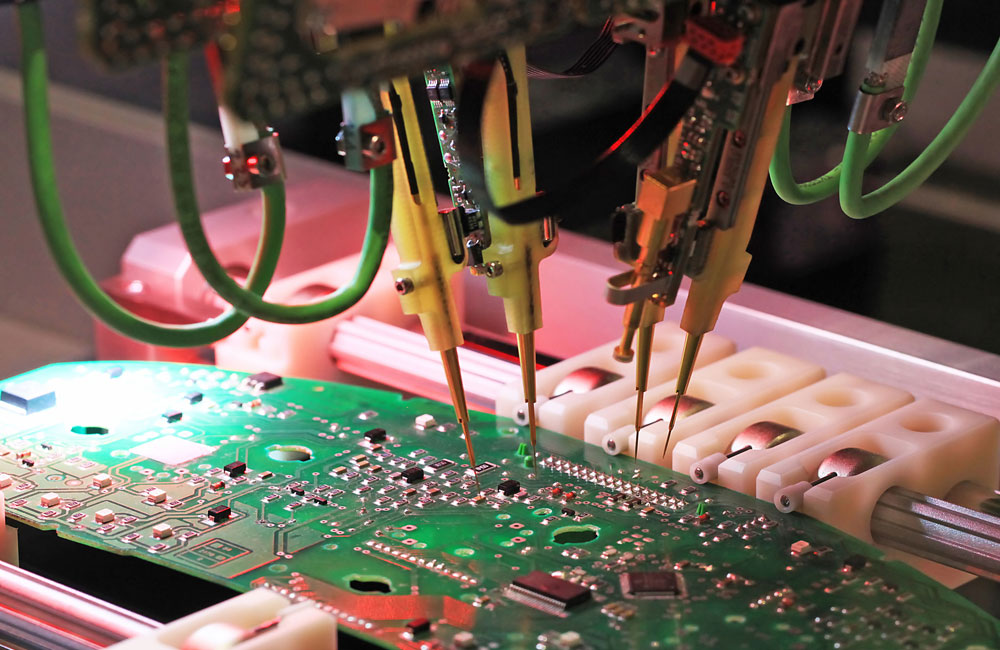
Sri Lanka to enter into electrical component manufacturing
He expressed the belief that local manufacturers have the potential to do this and they could produce some of these components saving much needed foreign exchange for the country.
A 6-member expert committee has been appointed by the Minister to find ways and means to promote this sector and make recommendations to launch the production of insulators locally for the power transmission sector.
The local manufacturers will have to produce insulators for the requirements of the Ceylon Electricity Board (CEB) and Lanka Electric Company (LECO) initially, a senior official of the ministry disclosed.
The committee comprises representatives with expert knowledge from the Ministries of Power, Industries, CEB, LECO and Lanka Ceramic Corporation.
Minister Alahapperuma has directed the committee to submit their report within a month, the official said.
The government has endorsed the budgetary support of the Treasury to this sector towards strategic growth in terms of technology, investments and employment generation.
It is well positioned to benefit from the industry’s steadily increasing levels of manufacturing in Asia, and can contribute to the diversification and technological upgrading of Sri Lanka’s exports, he added.
The ministry in collaboration with the Ministry of Industries will also be introducing a national-level framework for sector development, with focused product lines, and by encouraging investments into these product lines.
It will initiate a few electrical component manufacturing projects of national importance that will lead to improved and enhanced production in the sector, he disclosed.
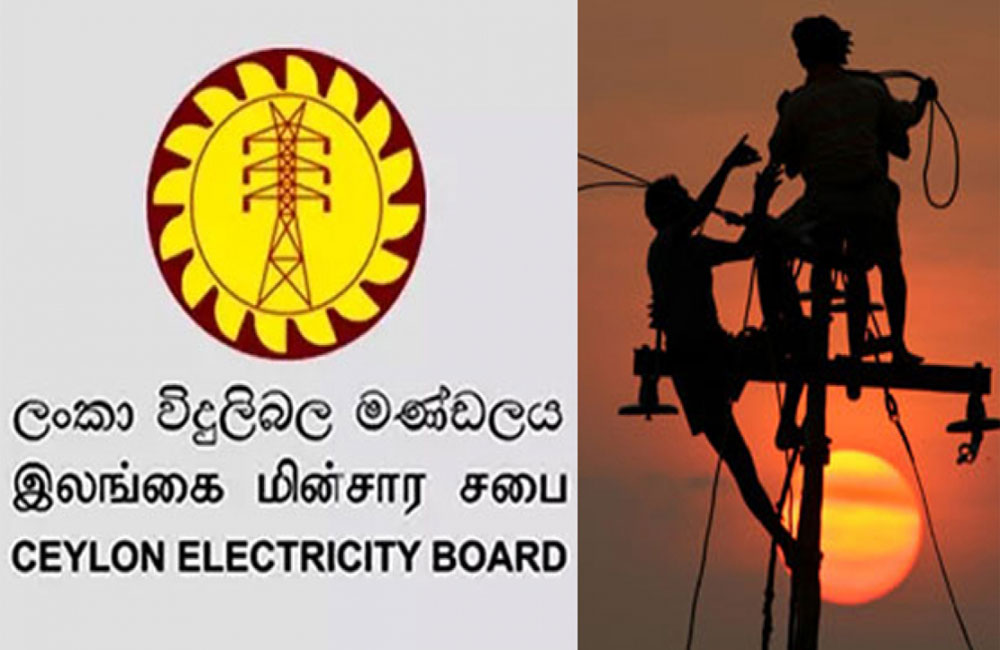
CEB consumer electricity fund in danger of being mismanaged
Leading members of several trade unions alleged that the government is making arrangements to re-constitute the board of the PUCSL paving way for stripping of its consumer protection powers.
There was a possibility that over LKR 25 billion in consumer deposits with the CEB would not be refunded due to the PUCSL restructuring, Secretary of the Union of Electricity Consumers (UEC) Sanjeewa Dhammika said.
When a person obtained an electricity connection from the CEB, he or she had to place a deposit at the regional CEB Engineer’s office.
In accordance with Sri Lanka Electricity Act, No. 20 of 2009, the CEB has to pay consumers an interest on those deposits, Dhammika said.
Section 28.3 of the Act says "(3): Where any sum of money is provided to a distribution licensee by way of security in pursuance of this section, the licensee (CEB) shall pay interest on such sum of money at such rate."
This interest may from time to time be fixed by the licensee with the approval of the Commission (PUCSL), for the period in which it remains in the hands of the licensee.’
Dhammika said: “None of the governments has paid this interest although the PUCSL annually declares the interest rate that has to be paid.
Now, there is about LKR 25 billion of electricity consumers’ money with the CEB.
"Since the PUCSL is to be dissolved, who is there to keep an eye on this money?" he asked.
Dhammika said that with LKR 25 billion, the government could construct a 100 megawatt power plant. The CEB should not be allowed to swindle the LKR 25 billion that belonged to the electricity consumers, he insisted.
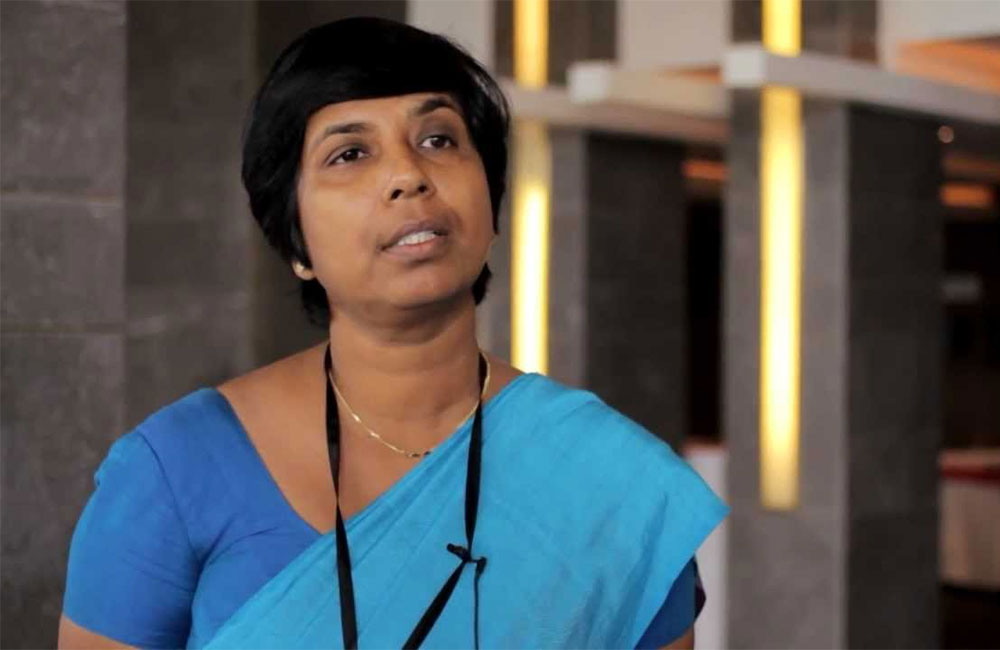
"We didn't approve 'Dhammika syrup: I'd rather not talk about it" - Dr. Sudarshanie Fernandopulle
She said that any vaccine or cure introduced to combat COVID-19 must be properly tested by clinical trials and pointed out that failing to do so could create adverse effects.
While noting that this syrup was approved by the Department of Ayurveda, she insisted that the media refrain from asking questions about various Ayurvedic concoctions from her.
"We did not approve. It's too late to talk about this syrup now,”she said.
She added that it was due to cultural beliefs that people thought 'Kali Amma' could cure diseases and that although she did not want to discredit such claims, she would rather provide information based on medical science.
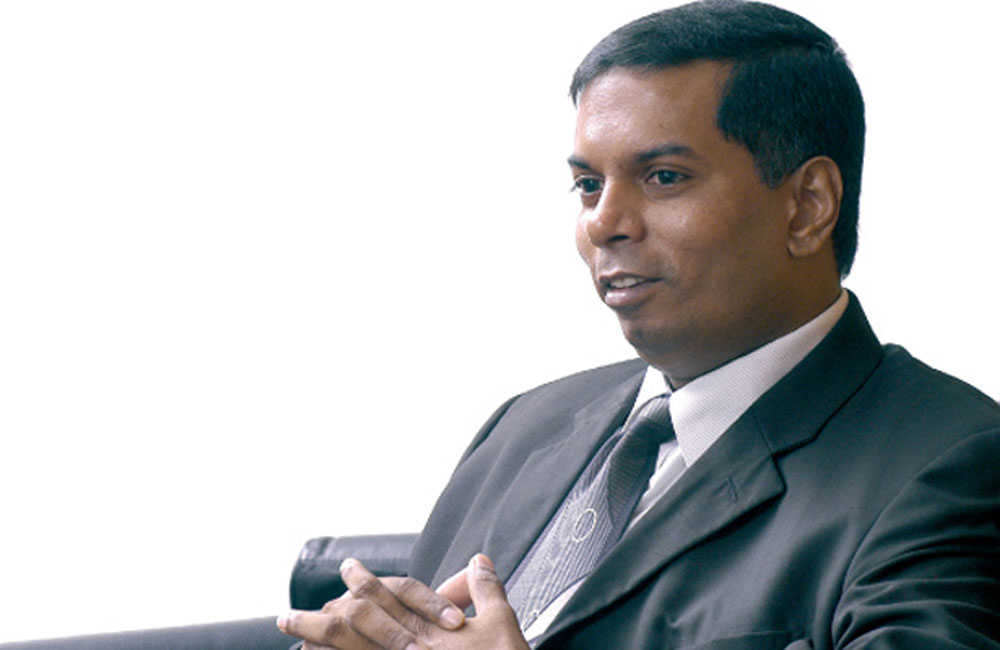
I resigned as CWE chairman - Nushad clarifies
In a statement, he stated that he is still the Chairman of ‘Lanka Sathosa’, the state-owned supermarket chain.

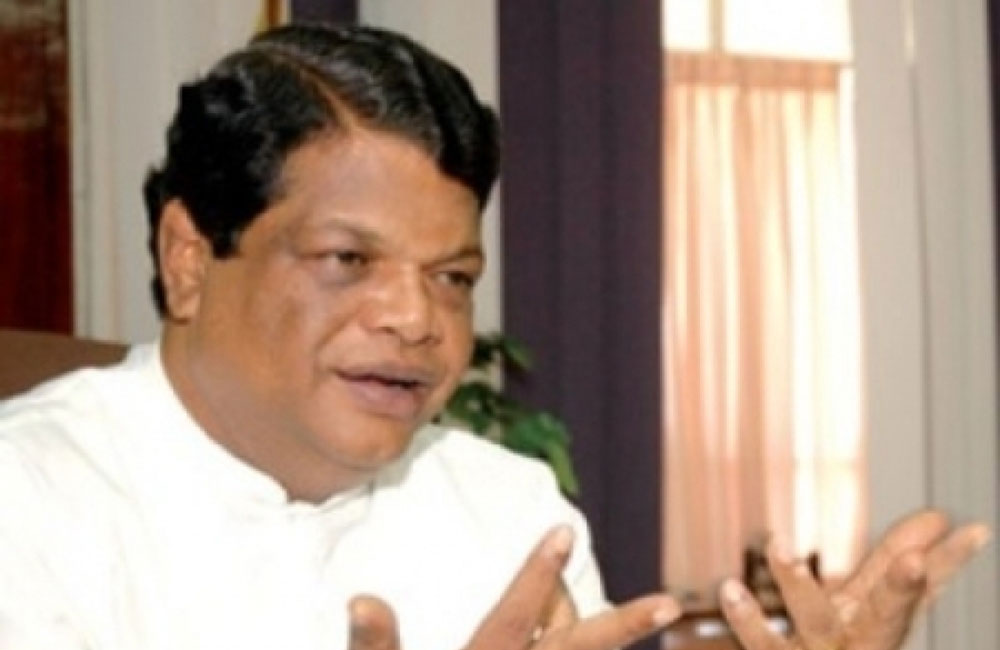 Reports surrounding the removal of Nushad Perera surfaced after allegations of malpractice were raised against him by Janatha Vimukthi Peramuna Leader MP Anura Kumara Dissanayake in Parliament recently.
Reports surrounding the removal of Nushad Perera surfaced after allegations of malpractice were raised against him by Janatha Vimukthi Peramuna Leader MP Anura Kumara Dissanayake in Parliament recently.However, internal government sources had earlier stated that Trade Minister Bandula Gunawardena had informed Nushad Perera to resign from his post according to the instructions of the President.
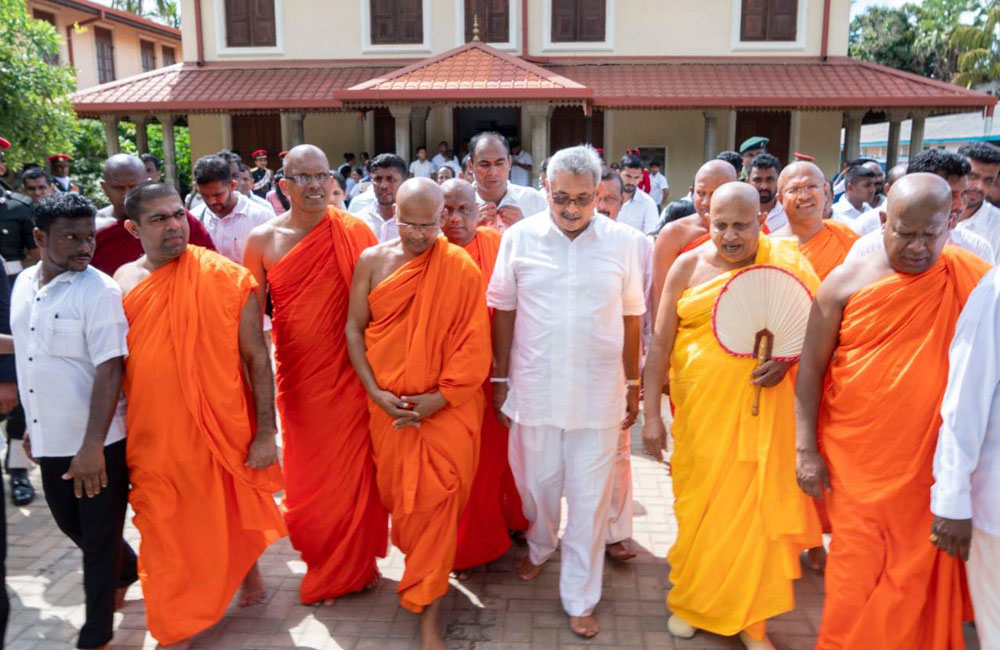
Chief Prelates urge President to bring new constitution before conducting PC elections
President Gotabaya Rajapaksa has come under intense pressure from the Chief Prelates of the three sects urging him to refrain from conducting the Provincial Council elections until a new Constitution is introduced as promised, internal government sources revealed.
The sources said that the Chief Prelates will take action against the government if they decide to conduct the Provincial Council elections under mounting pressure from Basil Rajapaksa.
It is reported that several monks who are loyal to the President have convened a special media briefing today to discuss this matter.
Meanwhile, the 'Anidda' newspaper, in its headline this week, stated that "Mahinda and Basil want to hold the PC election, Gotabaya is silent."
According to the news report, Prime Minister Mahinda Rajapaksa and SLPP National Organiser Basil Rajapaksa are adamant that the Provincial Council elections should be held soon under the old electoral system.

New taxes on imported readymade garments by April
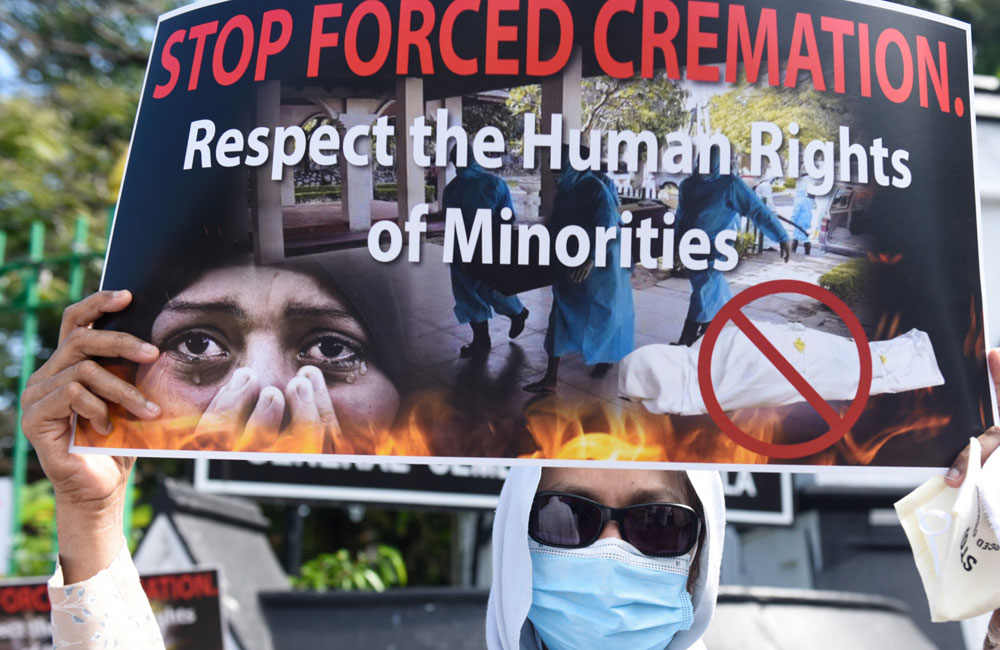
Sri Lanka’s mandatory cremation policy is playing politics with the dead - GTF
"Sri Lanka’s mandatory cremation policy has caused major outrage and trauma for the Muslim and Christian minorities, whose beliefs require dead bodies should be buried. It is the Muslim community that has been disproportionately affected by COVID-19, and to force them to adopt practices that violate their fundamental religious beliefs is cruel and inhumane," the GTF said in a statement.
It has been reported that the abuse of this policy is widespread and several Muslims whose bodies were cremated had not been tested for coronavirus, and even tested negative.
"Another tragic manifestation of this policy is that several Muslim families have even disowned their dead because they did not want to be complicit in the cremation of their bodies which is believed to be a sinful act against their loved ones," the statement pointed out.
They said that there is no scientific justification for the government to adopt this policy and deny the dead the dignity they deserve in death. In fact, the guidelines from the World Health Organization state that the burial of victims posed no danger to public health, and almost all the countries allow for the burial of COVID-19 victims, making Sri Lanka an outlier among the world nations.
"Top government officials changed their original guidelines under pressure from influential Buddhist monks to mandatory cremations. The Supreme Court rejected fundamental rights petitions filed by fourteen affected families without giving reasons for its decision. Faced with mounting domestic and international pressure, the government made an extraordinary attempt to fly bodies to Maldives for burial to placate its extremist support base. All these unquestionably indicate the direction Sri Lanka is heading," they said.
They noted that the mandatory cremation policy is not an exception, but rather one more fitting element within the broader agenda of the Rajapaksa government.
"The deplorable initiatives it has taken within a year, such as enacting the autocratic 20th Amendment to the constitution; appointing Presidential Commissions and task forces to scuttle established governance procedures; militarising top levels of the bureaucracy (including some who are credibly implicated in serious human rights violations), resorting to surveillance, intimidation and detention without charge (a precursor for rampant media self-censorship), and withdrawing from the UNHRC resolution which Sri Lanka pledged for years as its ‘solemn commitment to accountability and reconciliation’ – are indicative of its gradual transition from democratic to an authoritarian regime," the GTF warned.
"Lack of collective initiatives and counter actions now will only make the task much harder in the future. The civil society groups and all fair-minded people should seize the moment in the name of humanity, brotherhood and fundamental rights," the GTF added.
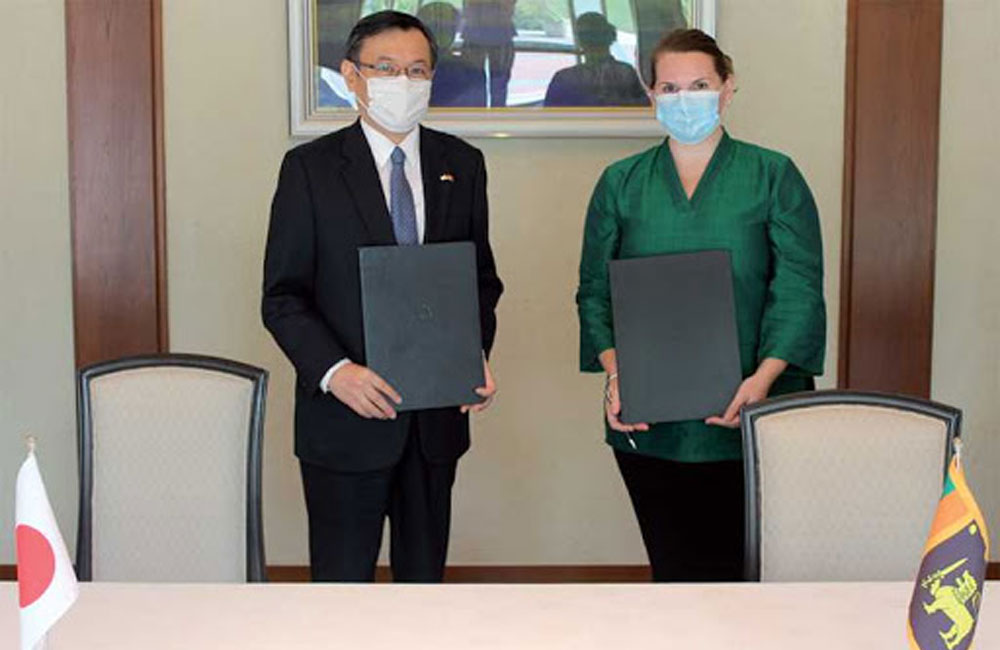
Japan grants LKR 115 million for humanitarian demining activities
The Government of Japan has provided a total sum of USD 636,262 (approx. LKR 115 million) to the Mines Advisory Group (MAG) for humanitarian demining activities in Northern Sri Lanka, the Japanese Embassy in Colombo said.
The grant contract was signed on the 23rd December 2020 at the Ambassador’s Residence in Colombo, between Sugiyama Akira, Ambassador of Japan and Emilie Mbaye, Interim Country Director of MAG. The project will contribute to the efforts of the Government of Sri Lanka in ensuring that mine-contaminated areas are safe, enabling the resettlement of displaced people and enhancing directly or indirectly more than 8,000 people’s livelihoods in the Mannar and Vavuniya Districts.
MAG commenced operations in Sri Lanka in 2002 with approximately 20% of its clearance activities accomplished through Japanese assistance. Since 2009 when precise data was made available, MAG has released the total of 93km2 of suspected contaminated land in the country.
Japan has been a major donor in the area of mine clearance in Sri Lanka since 2002 and is the only donor in the country which assists all four demining NGOs currently operating in the island. More than USD 38.2 million worth of assistance was rendered towards this cause through the Grant Assistance for Grassroots Human Security Project (GGP).
The Government of Sri Lanka aims to achieve “a mine impact free Sri Lanka” within a few years and to become the next mine impact free country in the world. Through this project the Government of Japan endeavors to ensure that Sri Lanka is safe for all.
Commenting on the provision of this grant, Ms. Emilie Mbaye stated;
“MAG is honored to accept this grant from the Government of Japan, an esteemed donor for Humanitarian Mine Action projects both within Sri Lanka and around the world. In the last six years alone, the partnership between MAG Sri Lanka and the Government of Japan has enabled the removal and destruction of over 13,000 landmines. It has helped many people resettle and rebuild their lives and livelihoods in Mannar, Mullaitivu and Vavuniya districts through its clearance operations.
The funding from the People of Japan will not only contribute to saving lives but also building safer futures for the mine-affected and poorest communities in the country. With this continued Japanese support, MAG is looking forward to continuing clearance activities during the final stage of landmine release in the country in support of the Government of Sri Lanka’s commitment to being mine impact free.”
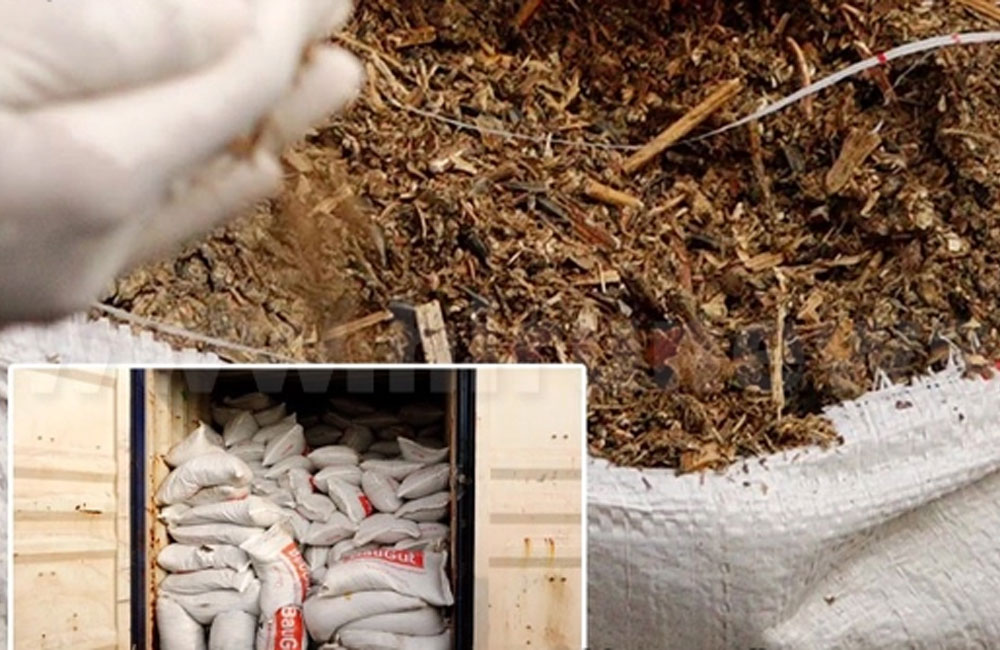
Customs to launch scientific probe into agri plant waste imports
“Further investigations with regard to the 28 freight containers of Agricultural Plant Waste from Ukraine, are still ongoing,” Customs Spokesperson, Sunil Jayaratne revealed.
The consignment was sent from AGRONIKA TRADE in Ukraine, in the guise of Coriander seeds.
“The investigation will specifically focus on an intermediary individual involved in the importation process, as all the eight importers connected to the incident have claimed they are victims of fraud and were deceived,” Sunil Jayaratne, the Customs Spokesperson further noted.
Meanwhile, according to Dr. Anil Jasinghe, the Secretary to the Ministry of Environment, it is possible to inform the Ukrainian Environmental Authority about the relevant containers since the consignment contained waste.
“A complaint will be lodged with the Basel Convention Secretariat located in Geneva as well,” Dr. Jasinghe further said.
According to the Basel Convention, the export of agricultural waste from one country to another is strictly prohibited and Sri Lanka is also a signatory to the Convention.

Lanka Sathosa Chairman removed
Minister of Trade Bandula Gunawardena has taken action to remove the chairman of Lanka Sathosa, Nushad Perera, with immediate effect under instructions from President Gotabaya Rajapaksa. The Chairman was alleged to have caused substantial losses to the government through a sugar racket by joining forces with a notorious company.
It is reported that Bhadrani Jayawardena, the Secretary to the Ministry of Trade, has been appointed as the acting Chairman of Lanka Sathosa.
Sources say that Nushad Perera has been informed to resign immediately from the post by the Ministry of Trade.
The notorious company as well as Nushad Perera have been engaging in this racket without any hindrances by abusing the President's name to intimidate top officials at the Ministry of Trade.
Minister Bandula Gunawardena had recently met with the President and expressed his grave concerns regarding this matter.
Page 255 of 533